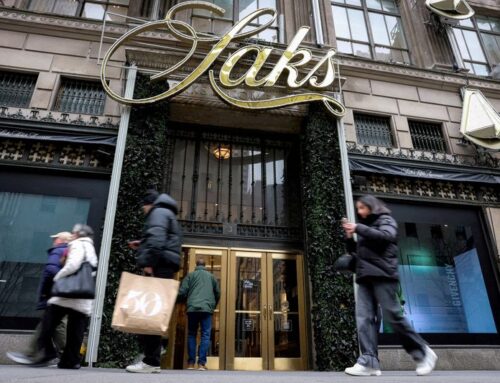Bank stocks plunge as tariffs hit: Signals from JPMorgan, Wells Fargo and Citigroup
April 3, 2025
The stock market was having its worst day in years on Thursday after President Trump announced tariffs on more than 180 countries that were far worse than expected. As of 1 p.m. ET, the S&P 500 (^GSPC -4.84%) was lower by nearly 4% for the day, and the tech-heavy Nasdaq Composite (^IXIC -5.97%) was doing even worse, down by 5%.
Bank stocks were one of the hardest-hit stock market sectors. Megabank JPMorgan Chase (JPM -7.05%) was lower by 5.5%, consumer-focused Wells Fargo (WFC -9.20%) was down by 7.4%, and Citigroup (C -12.17%) fell by more than 10%.
Why are bank stocks performing so poorly?
At first glance, the big U.S. banks might not seem to have too much to worry about from tariffs. After all, they don’t really import anything, nor do they sell any taxable products in international markets (although Citigroup does have the most international exposure of the three, which could explain why it is the worst performer).
However, banks could be impacted by tariffs more than you might think. The performance of a bank is highly dependent on the health of the U.S. economy. If a recession hits, for example, consumers spend less, which means lower loan volumes, and it also tends to lead to people having trouble paying their bills, leading to rising loan losses.
When it comes to tariffs, the big worry is that the new tariff rates will make the prices of goods higher for consumers, who already feel squeezed by the inflationary environment of the past few years. Higher prices could cause loan growth to slow, borrowers to fall behind on payments, and small business customers to close their doors.
To be sure, we’ve already seen loan loss rates tick upward a bit since the COVID-19 pandemic ended, but not nearly to the extent that some had feared would happen due to inflation spiking to multi-decade highs in 2022. So it isn’t entirely predictable how rising inflation from tariffs would actually impact banks’ earnings results.
Should investors avoid bank stocks?
One thing important to keep in mind is that this is the initial reaction to what is still a very fluid situation. There’s no way to know how long the tariffs will be in place, whether some or all of them will be negotiated lower, or what impact they could have on inflation.
All this means there’s no reason to panic and sell your bank stocks if you’re invested in financial institutions with solid leadership, strong asset quality, and that have good balance sheets (like all the big banks do). But it’s certainly worth keeping an eye open for any signs that loan losses are starting to increase or that loan demand is significantly declining.
Wells Fargo is an advertising partner of Motley Fool Money. Citigroup is an advertising partner of Motley Fool Money. JPMorgan Chase is an advertising partner of Motley Fool Money. Matt Frankel has no position in any of the stocks mentioned. The Motley Fool has positions in and recommends JPMorgan Chase. The Motley Fool has a disclosure policy.
Search
RECENT PRESS RELEASES
Related Post



